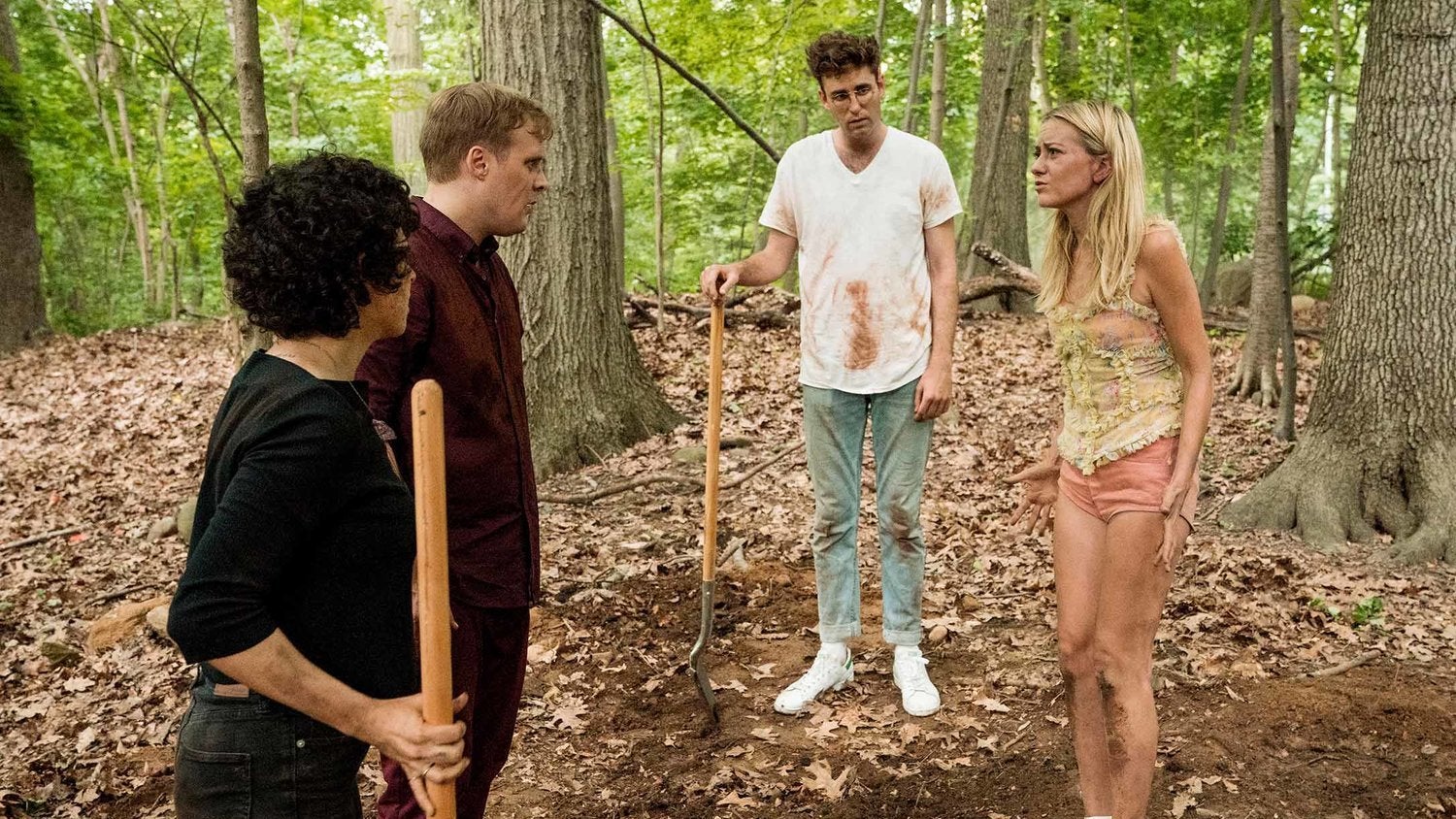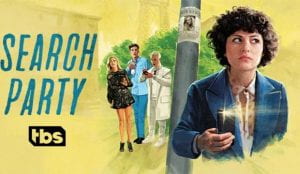I’ve talked about both writing and cinematography in Search Party before, but I want to take a moment to explore how those two concepts portray character development in the show, particularly Dory’s character. Our first interaction with Dory is silly and bright. She’s standing on a street corner in New York, contemplating the missing person poster tacked to the nearby telephone pole: Chantal Witherbottom. Obviously there’s something about her that Dory is interested in, since she gets distracted enough to step in dog poop as she is contemplating the poster. That scene is funny, too; an upset pedestrian calls Dory out for it, complaining that she’ll make the “whole MTA smell like shit” if she wears them on the train. This moment is jarring yet humorous, and it anchors the viewer back into reality.

The poor girl has no idea what she’s in for.
Here’s the thing about that scene, though: it’s sinister. We don’t know who Chantal is, except for the short clip of people yelling out her name in the woods at the very beginning of the series. We don’t understand that Chantal, beautiful-crazy-stupid-Chantal, is going to ruin Dory’s life. We don’t know yet that Dory is going to meet Keith, kill Keith, and ultimately have to pay the price for his death. We’re safe, unassuming, just like the way the opening scene plays out. The disheveled way Dory is dressed, the safety in broad daylight, the humorous remark of the pedestrian all lead us to believe that everything is going to be okay.
Spoiler alert: everything is Not Okay And Very Bad. The final scene of the show is in complete juxtaposition to the opener. Dory’s all dolled up: red cocktail dress, sleek and professional hair, powerful red lip. She’s grown up, matured, seen some real messed up stuff. The thing is, though, she’s still unassuming. She doesn’t expect what is about to hit her. There’s irony in the scene. It’s supposed to be triumphant, she’s supposed to be up on stage with a winning political candidate, part of a new team that actually got it right for once. What goes around comes around though, and upon her arrest, Dory is instantly transformed. She’s vulnerable, defeated, restrained. The lighting of the scene is ominous. Even the music is scary. It sets up Dory for the next season: what will happen? She’s lost all her friends, so how is she going to get out of it this time? I guess we’ll just have to wait and see.

Look at how dark the last time we see Dory is compared to the first



